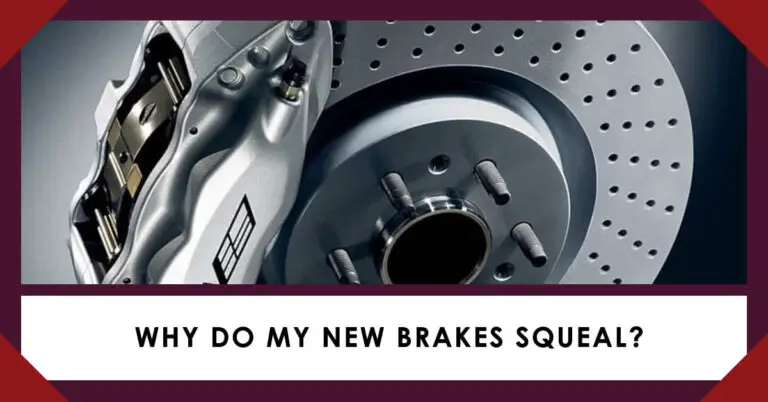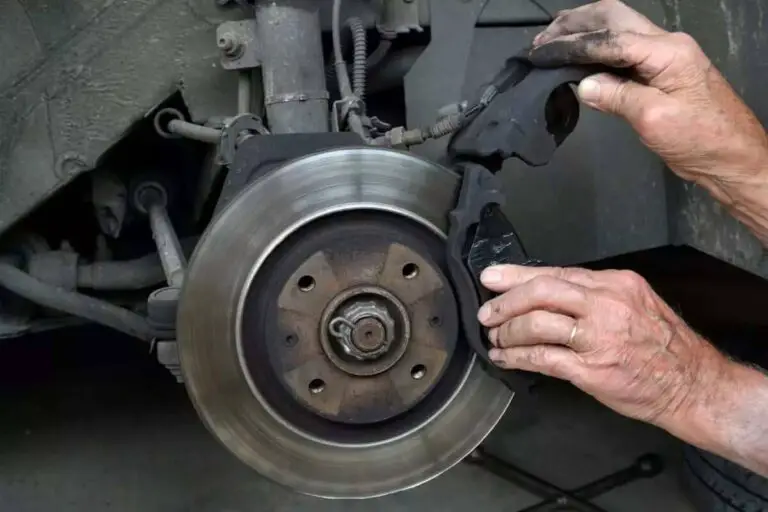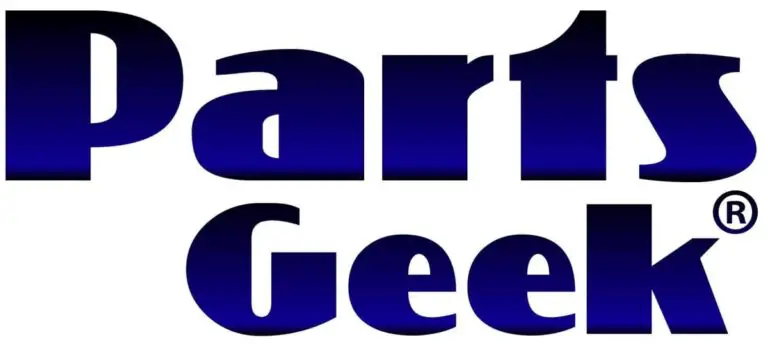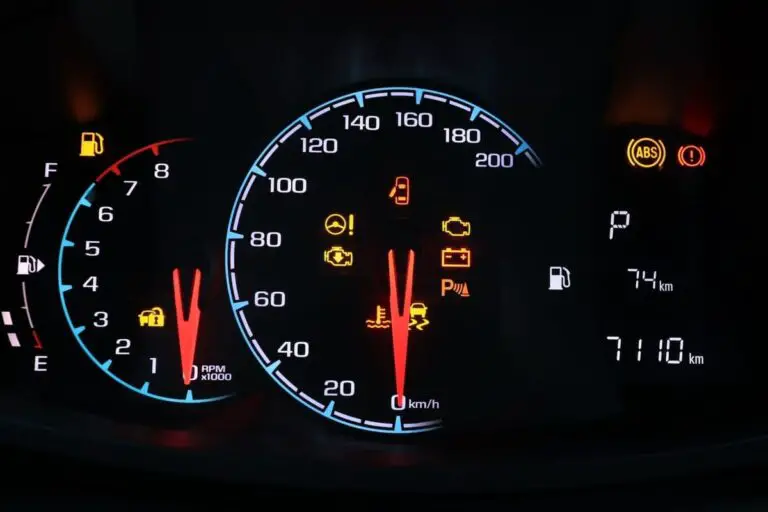Motor Vehicle Service Notification: Scam or Legitimate? Here’s How to Tell

Have you ever received a letter in the mail claiming your vehicle’s factory warranty is about to expire and that you need to take immediate action? These types of motor vehicle service notifications often seem suspicious, leaving many wondering – are they a scam?
The short answer is – sometimes yes, but not always. Some service notifications are legitimate communications from auto manufacturers, while others are shady attempts to get you into a dealership to purchase extended warranties or services you may not need.
So how can you tell if a motor vehicle service notification is a scam or not? In this comprehensive guide, we’ll cover:
- What motor vehicle service notifications are
- Common scam notification claims to watch out for
- Ways to identify legitimate notifications
- Steps to verify if a notification is real
- Why extended warranties are often unnecessary
- How to protect yourself from predatory sales tactics
By the end you’ll understand the truth about these notifications and have the knowledge to determine if an auto service notice is a scam or legitimate. Let’s get started!
Table of Contents
What Are Motor Vehicle Service Notifications?
First, let’s clarify exactly what motor vehicle service notifications are.
Motor vehicle service notifications are official notices sent by auto manufacturers to vehicle owners advising them of issues related to their specific car or truck.
They can cover a wide range of topics, including:
- Recalls – Notifications about safety defects or noncompliance with federal vehicle regulations. Recalls explain the issue and how to get it fixed by a dealer.
- Technical service bulletins – Notices informing technicians of known problems and recommended fixes. This allows issues to be diagnosed and repaired proactively.
- Maintenance reminders – Messages reminding owners when regular maintenance services are due based on mileage and time intervals. Oil changes, tire rotations, brake inspections, and more.
- Warranty expiration – Notices alerting owners that their original factory warranty is nearing expiration or has expired. May recommend extended warranty purchase.
- State emissions inspection/registration renewal – Reminders about upcoming vehicle registration and state inspections needed to renew license plates.
So in summary, legitimate motor vehicle service notifications provide important information from automakers to help vehicle owners address repairs, maintenance, registrations, inspections, warranties, and recalls.
Common Motor Vehicle Service Notification Scam Tactics to Watch Out For
While some service notifications are genuine, many fraudulent notifications are sent by scammers impersonating car companies. Here are some common motor vehicle service notification scam tactics to watch out for:
Aggressive Claims of Warranty Expiration
One big red flag is urgent claims that your vehicle’s factory warranty is about to expire. Scam letters will dramatically say something like “Final Notice: Your warranty expires in 30 days, contact us immediately!”
Their goal is to create a false sense of urgency so you’ll rush to a dealership and be pressured into purchasing an overpriced extended auto warranty you likely don’t need.
Of course, legitimate warranty expiration notices are sent too. But real notifications clearly explain the warranty status without aggressive demands or pushy sales language.
Suspicious Requests for Personal Information
Shady service notifications often request sensitive personal information upfront, such as your credit card number or social security number. They may claim they need it to “verify your identity” or “process your warranty”.
A genuine notification would never ask for personal info like this. So it’s always a scam if they do.
High-Pressure Sales Tactics
When you show up to a dealer because of a service notice, be wary if they immediately start pushing expensive extended warranty options or unnecessary maintenance packages.
Unethical dealerships take advantage of notices to scare customers into purchasing overpriced services and warranties they don’t actually require. Legitimate dealers will simply address the purpose of the notification without upselling.
Misleading Threats and False Urgency
Skillful scammers use threatening language like “your car will be excluded from coverage” or “response required immediately” to trick you into thinking there will be dire consequences if you don’t act right away.
Real service notifications provide the facts without manipulation or falsely inflated urgency. They give clear instructions on next steps without threats or pressure.
Signs a Notification is Legitimate
Now that you know common motor vehicle service notification scam warning signs, here are some indicators a notice is legitimate:
- Sent directly from the manufacturer – Real notices come from the maker of your specific vehicle brand, such as Ford, Toyota, GM, etc. Scams impersonate car brands.
- Professional presentation – Legitimate notices have a polished, professional look and feel, usually with the automaker’s logo clearly displayed. Scams appear shoddier.
- Lack of urgency or threats – Valid notices calmly provide information without demanding immediate action under threat of consequences.
- No request for personal info – Official manufacturers would never ask for private data like credit cards or SSNs in a service notification.
- Focus on maintenance, safety, registration – Genuine notices center on non-sales topics like repairs, inspections, recalls, routine maintenance reminders, registration renewals.
- Posted on company website – Most authentic notifications from automakers are also posted publicly on their websites.
- Valid VIN – Notices with your actual 17-digit vehicle identification number indicate an automaker sent it. Scams often lack a VIN or use a dummy number.
So in summary, real service notifications are informational in nature, provide options instead of demands, come directly from the manufacturer, and focus on safety, maintenance and registrations rather than sales.
How to Verify if a Service Notification is Legitimate?
If you’re unsure whether a motor vehicle service notice is official or a scam, here are steps to find out:
Look Up Online Using VIN
Most major automakers like Toyota, Ford, GM, Honda etc. provide free online resources to check service notifications using your vehicle’s unique VIN number. For example, Ford owners can visit Ford.com and enter their VIN to see any legitimate notices sent for that specific vehicle. Results showing no notifications indicates a letter was likely a scam attempt.
Call Manufacturer’s Customer Service
You can call the official customer service number listed on the automaker’s website – not the number in the questionable mailer. Provide your VIN. Genuine reps will happily look up and verify any real outstanding service notifications directly in their system.
Search NHTSA Website for Recalls
For recall notices specifically, you can verify their legitimacy by going to the National Highway Traffic Safety Administration’s website and searching for recalls by VIN. Any real open recalls on your vehicle will be listed in their public database.
Ask Your Local Dealer Service Department
Your neighborhood dealer’s service department can look up by VIN to check for any actual service notifications sent by the car manufacturer relevant to your vehicle’s specifics. This instantly tells you if a notice is fabricated.
So in short, go straight to the source and check directly with the automaker, the government’s recall database, or your local dealer service center to verify the validity of any questionable vehicle service notification.
Why Extended Auto Warranties are Usually Unnecessary?
A major goal of many scam motor vehicle service notices is to lure you into buying an extended auto warranty. But are extended warranties actually valuable for most car owners?
In most cases, extended warranties are not necessary and provide little benefit to consumers. Here’s why:
- Factory warranties are sufficient – New vehicles come standard with comprehensive factory warranties, usually 3 years/36,000 miles bumper-to-bumper and 5 years/60,000 miles powertrain. These cover repairs during the period when most issues arise.
- Cars are very reliable today – Vehicles made in the last decade are engineered to last well over 100k miles with few problems. Maintenance costs are much lower thanks to improved manufacturing quality and parts durability.
- Low risk after warranty expires – Majority of repairs happen under original warranty period. After expiration, rarely are costly repairs needed during next 5-10 years of typical ownership.
- Repairs are affordable – With the rare out-of-warranty issues, the repair costs are usually reasonable relative to deductibles you’d pay with an extended plan. Easier and cheaper to pay out-of-pocket.
- Pay more in premiums – Data shows drivers pay far more in extended warranty premiums than the value of covered repairs they end up needing. The odds favor the automaker’s profits, not your savings.
For most car owners, doubling down on the factory warranty with a prepaid extended plan wastes money without providing meaningful protection. The extra peace of mind isn’t worth the significant additional cost.
How to Protect Yourself from Predatory Extended Warranty Sales Tactics?
Now that you know most extended warranties are a bad investment, here are some tips to protect yourself from dealership sales pressure and avoid buying unnecessary add-on plans:
- Stick to warranty repairs – If you do visit a dealer because of a legitimate notification, clearly state you are only there for the factory warranty repair or service stated in the notice. Refuse all extended warranty pitches.
- Research reputable independent mechanics – For maintenance repairs after the warranty, trusted local mechanics often provide equal or better service for much less cost than dealers.
- Quote other providers – If you do want an extended warranty, compare quotes from independent third-party providers as an alternative to often overpriced dealer warranties.
- Negotiate price – Use quotes as leverage to negotiate the dealer’s price down substantially. They inflate pricing knowing it’s negotiable.
- Read contract details – Don’t sign anything until you read the full contract. Know exactly what’s covered, what’s not covered, deductibles, and cancellation terms in case you want to cancel later.
- Cancel if allowed – Many extended warranties can be cancelled within 60 days for a full refund. Exercise this option if they pressure you into an unnecessary plan.
With the right preparation and firmness, you can avoid the trap of overpaying for overhyped extended protection plans when you take your car into the dealership for a factory warranty repair or service notification.
Don’t Get Duped by Motor Vehicle Service Notification Scams
In summary, not every motor vehicle service notice you receive is automatically a scam, but many fraudulent notifications do exist. Letters urgently claiming your warranty is expiring and pressuring you to act now are huge red flags of a scam.
Protect yourself by learning to recognize the distinguishing signs of legitimate vs fake notifications from manufacturers. Verify questionable notices directly with the automaker. And don’t fall for high-pressure sales tactics pushing unnecessary extended auto warranties and services if you do visit a dealership.
Now that you know the real truth about these notifications, you can confidently determine if a notice is a scam or legitimate, avoid manipulation from predatory dealers, and save yourself from wasting money on useless extended warranties. Stay well-informed, be skeptical of any urgent claims or demands, and make smart decisions!
Conclusion
Motor vehicle service notifications can either be helpful maintenance reminders and recall alerts from automakers, or shady scams trying to dupe you into the dealership. By learning some simple scam detection tips, verifying all notices, and sticking firm against sales pressure, you can protect yourself and make sure only to take action on legitimate notifications that truly benefit you as a vehicle owner. Follow the guidance in this article and you’ll never fall victim to misleading vehicle service notification scams again!







